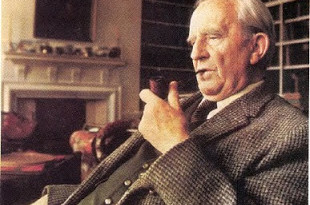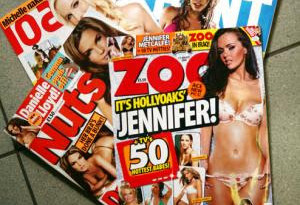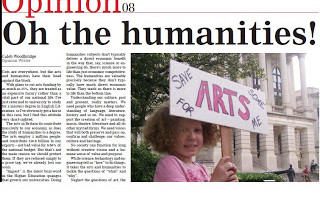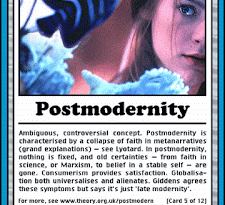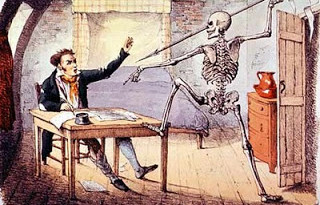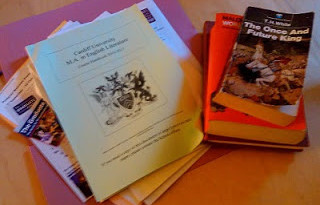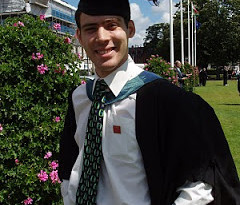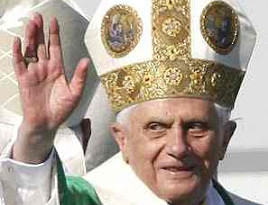
Six years ago, a young, innocent and fresh-faced boy found himself suddenly transplanted from the wilds of deepest, darkest Wales to the seething cosmopolitan mass that is Cardiff (well, that’s how it seemed at the time, anyway). Once his parents drove away, he was alone in the city, not yet knowing anyone or anywhere, left to discover a new life as a student.
That was me, back then.
Fast forward to the present day… six years, a degree in English Literature and History, several jobs, two published short stories, some additional facial hair, and a lovely wife later, and I was once again walking in to Cardiff University to enrol for my studies. This is me, now.
When I came away to university in 2004, everything was new – new city, new university, new course, new friends, new flatmates, new church. Starting my masters in 2010 is a very different, I already have a wife, home, church and set of friends; I already know the city and the university.
So the transition from my life immediately before my MA in English Literature to studying for it won’t be nearly so stark, but it may be all the more startling for intruding on and changing my life as it was before, rather than being a whole new existence.
And it will be a very different from undergraduate study. For one thing, I now understand that my reading lists aren’t a theoretical ideal, shining far off and distant like a Platonic form, but something I’m supposed to actually get on with and read!
Some things never change, of course, such as the bizarre initiation rite by which you have to make your way down the street without being drowned in flyers and leaflets.
My favourite flyering-related incident yesterday was being accosted by a member of the Christian Union, who looked around 10-years-old. “Do you know about the Christian Union?” he asked. “Know it? Hah! I was in the CU before you were doing your GCSEs, sonny-my-lad!” Perhaps fortunately, I didn’t think to say that at the time, but instead muttered something polite about having already looked at their website. But there’s plenty of time for me to develop a well-cultivated and curmudgeonly disdain for the antics of undergraduates.
At enrolment, we discovered that there are around 30 students on the MA course this year, which is quite a high number. A large proportion of those – maybe two-thirds? – have come straight from the English Literature BA course. Some seemed slightly alarmed at the reduced class sizes – some modules run with only two or three students on them, and at the enlarged workload! But Professor Martin Coyle used his usual wit and humour to put us at our ease – we’re masters students by the end of the course, we’re not expected to suddenly jump up to a whole new level overnight, but grow into it over time.
Before enrolment, I went to the Chaplaincy drop-in café, and met Sophie who’s doing the same course, and many of the same modules, as me. I’ve now found out that out of eight people studying The Myth of King Arthur in the 19th and 20th Centuries, half of us are Christians. I’d prayed that there would be another Christian on at least one of my modules, so God certainly answered that prayer in abundance!
I also dropped into the Gair Rhydd office, which has had a nice make-over since I was a student, to offer my writing services once more. It was a nice measure of how much I’ve grown in confidence since I was a fresher – I tried to go up to introduce myself in Freshers’ Week in my first year, but dithered around outside and chickened out. Although I still get nervous in new situations and with new people, I’m much better at not letting it get to me and just chatting with people. And once I start talking, the usual problem is then getting me to shut up.
In the evening, I headed out to the Postgraduate Meet and Mingle in the Graduate Centre. We were given “human bingo” cards to help facilitate conversation, consisting of a grid with things like “Can ride a horse”, “Is a fan of Star Wars“, “Has the same birthday as you”, and had to find people to match each of them.
It was a bit random, but I met some interesting people, including some from my course, and some Doctor Who fans, so I was able to have some meaningful conversation amid the endless stream of “What’s your name? Where are you from? What are you studying?” Bev joined me there after her Welsh lesson and also enjoyed it. It was nice to be able to introduce people to my wife, because most people don’t expect me to be married.
So it was a great day – met loads of people, including Danielle, Dyfrig, Sue, Alison, Mike, Beth, Heather, Pete, and many others. The rest of the week is a bit less hectic, but there’s plenty to be getting on with, not least finishing redrafting my novel and doing the reading for the course.

